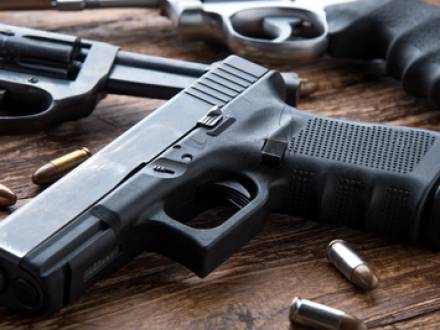
Felon-in-Possession Charges in Maryland: What to Expect
 In the state of Maryland, possession of a firearm following a felony conviction is much more than simply a technical violation. It is a serious felony that can result in years in prison, mandatory minimum sentences, and the permanent loss of gun rights. Whether the weapon is found during a traffic stop or a home search, prosecutors in the state treat felon-in-possession cases as high-priority offenses.
In the state of Maryland, possession of a firearm following a felony conviction is much more than simply a technical violation. It is a serious felony that can result in years in prison, mandatory minimum sentences, and the permanent loss of gun rights. Whether the weapon is found during a traffic stop or a home search, prosecutors in the state treat felon-in-possession cases as high-priority offenses.
It is essential to understand how the state defines a "prohibited person," what counts as possession, and what defenses may apply if you are facing felon-in-possession charges. When you have an experienced Centreville, MD criminal defense lawyer who can build a strong defense on your behalf, you are likely to have the best outcome possible.
Maryland’s Law on Felons and Firearms
Under Public Safety Article Section 5 – 133(c), possession of a firearm is prohibited by any individual who has been convicted of a disqualifying crime. A disqualifying crime includes any felony conviction (even for a nonviolent crime like embezzlement) and any violent crime, such as robbery, assault, burglary, or manslaughter. Some misdemeanor domestic violence offenses are also disqualifying crimes.
"Possession" of the firearm could be actual possession, constructive possession, or joint possession, which means the firearm does not actually have to be physically on the person. The law applies to handguns, shotguns, rifles, and antique firearms. Updates to the law in 2023-2024 expanded these restrictions to cover 3D-printed firearms, unfinished frames, and "replica" guns, also known as "ghost guns."
What Are the Penalties in Maryland for Felon-in-Possession?
The mandatory minimum sentence for a conviction of felon-in-possession is five years in prison with no parole if the individual’s prior crime was a "crime of violence." If more than five years have passed since the completion of the previous sentence, the minimum sentence is then within the discretion of the court. The penalties can be as high as 15 years in prison under Section 5-133(c).
If an individual has more than one firearm, each firearm can be considered a separate offense, which can significantly increase prison time. The collateral consequences of a felon-in-possession conviction include difficulty obtaining employment or housing after release, being barred from obtaining a hunting license or firearm permit, and loss of voting rights until the sentence is completed.
How Does the State of Maryland Prove Gun Possession?
Actual possession means the firearm was found on the person. Constructive possession means the firearm was found in a location under the person’s control, such as his or her home, vehicle, or locker. Joint possession indicates that multiple people share access to the location where the firearm was found. In the case of joint possession, the prosecution must prove knowledge and intent.
What Are the Most Common Defenses to Felon-in-Possession Charges?
While each case is different, and the defense will be based on the specific facts, circumstances, and evidence, the most common defenses to felon-in-possession charges include:
- The defendant was unaware of the presence of the firearm
- The evidence was obtained without a valid warrant or probable cause
- The defendant borrowed a car or shared a residence with another person, and the firearm belonged to that person.
- The original conviction is older and no longer qualifies as "disqualifying" under the updated statutes.
- The Maryland state charges conflict with a federal plea or restoration of rights.
Maryland generally does not allow felons to regain their firearm rights, except in cases where certain nonviolent felonies are expunged or pardoned, or when the governor pardons the individual. An attorney must review whether the conviction qualifies for relief or reclassification.
Contact an Anne Arundel County, MD Gun Crimes Attorney
If you have been charged with felon-in-possession, the stakes are extremely high, as a conviction can mean years behind bars. A knowledgeable Centreville, MD criminal defense lawyer from Henley & Henley, Attorneys at Law can challenge the legality of the search, contest possession, and explore all options for charge reduction or dismissal. Our two attorneys have more than 50 years of combined legal experience, and we can often offer a flat fee to our clients. Call 410-280-0530 to schedule your initial attorney meeting.




